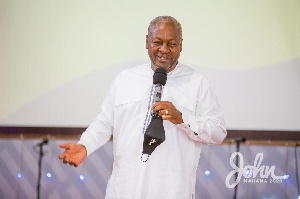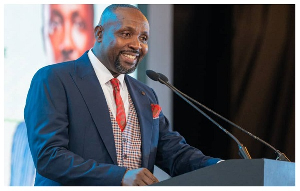Former President John Dramani Mahama has criticised the continued imposition of COVID-19-related taxes in the country by the Akufo-Addo-led government.
According to Mahama, the nation remains burdened by financial measures linked to a pandemic that has long since ended.
Addressing attendees at the Mahama Youth Town Hall on Monday, 12 August 2024, the National Democratic Congress (NDC) flagbearer expressed his concern over the persistence of taxes that were originally introduced to manage the economic challenges brought on by the COVID-19 crisis.
“Ghana is the only country I know that is still being taxed for a pandemic that has passed,” Mahama remarked, highlighting the COVID tax, a value-added tax (VAT) implemented by the government during the pandemic to increase revenue.
Despite commitments from political parties to eliminate this tax, it remains in force, much to the frustration of many Ghanaians.
Mahama explained that the government's hands are tied due to its revenue commitments to the International Monetary Fund (IMF), which include the COVID tax.
“It's part of the IMF agreement. As part of their agreement with the IMF to increase revenue, they've locked COVID inside. So, if you come and want to take the COVID tax out, it means you're not fulfilling the agreement with the IMF,” he stated.
The former president also criticised the Electronic Levy (E-Levy), a tax on digital financial transactions, labelling it as ineffective.
“One of the taxes that is not performing is the E-Levy. They said the E-Levy would solve every problem in this country. Unfortunately, it's not performing well," Mahama noted.
In response to these issues, the NDC flagbearer pledged that, if elected, his government would work to rationalise taxes, expand the tax base, and eliminate what he described as “obnoxious taxes with the goal of alleviating the financial burden on Ghanaians while still meeting the country's fiscal obligations.
Click to view details



Politics of Tuesday, 13 August 2024
Source: classfmonline.com

















